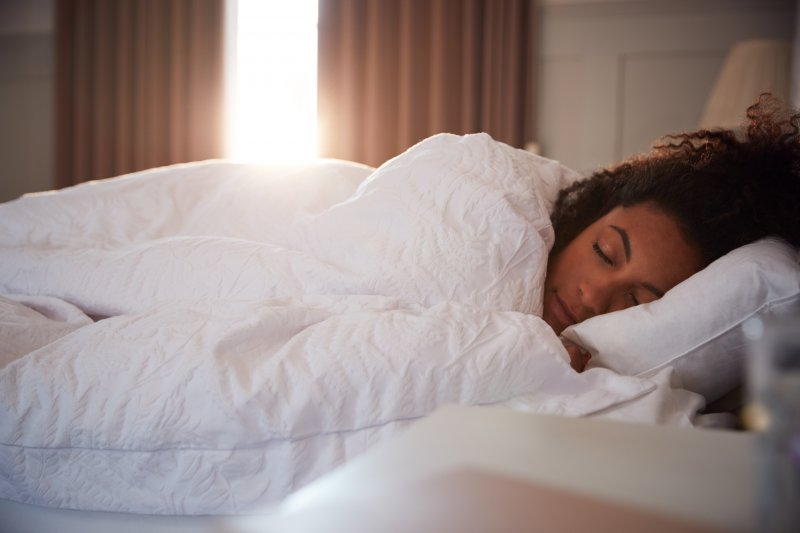Sleeping in on the Weekends Can’t Repay Your Sleep Debt
July 22, 2021
Feeling tired? Most adults require 7–9 hours of sleep each night to function and operate on all cylinders. Unfortunately, millions of people skip out on sleep, especially when they are pushing through that Monday–Friday grind. Many often think that they will just “catch up” on sleep by staying in bed later on Saturday and Sunday mornings. While this strategy might seem reasonable on the surface, it actually doesn’t work to repay your “sleep debt,” especially for those who suffer from sleep apnea. Let’s discuss why so that you can start getting the sleep your body needs to survive and thrive.
Extra Sleep on Weekends Doesn’t Repay Sleep Debt
A 2019 study looked at the effects of three different weekly sleep patterns over a two-week period. One group of subjects was allowed to sleep up to nine hours each night; one group could sleep only five hours each night, and the third group could sleep five hours on weeknights but was allowed to sleep in on the weekends.
The group that only got five hours of sleep each night experienced a significant drop in insulin sensitivity and changes in their metabolism. The weekend sleepers did not fare any better. In fact, their sleep quality actually worsened when they were forced to go back to getting only five hours of rest each night.
The bottom line? Sleeping in on the weekends doesn’t make up for sleep lost during the week. Always strive to get enough sleep each and every night if you want to achieve and maintain optimal health outcomes.
The Best Way to Repay Sleep Debt
Here are some tips to help you get into the habit of sleeping an adequate amount each night:
- Figure out how much sleep you need. The next time you go on vacation or have a staycation with no work, go to bed at the same time every night, but let yourself sleep in every morning. Take note of how long you slept and how it made you feel. Incorporate that insight into your regular sleep schedule.
- Adjust your normal routine. You may need to cut back on weeknight TV, reduce your caffeine intake, turn off the cellphone before you head to the bedroom, or talk to your boss about adjusting your work schedule so you can start getting the sleep you need.
- If necessary, talk to your doctor. Some individuals accumulate a sleep debt because they have a sleep disorder, such as sleep apnea. If, despite your best efforts, you find that you are still struggling to get enough sleep, resulting in excessive daytime sleepiness, you may want to speak to your doctor about arranging a sleep test. You can get a head start by taking our online sleep screener.
Getting enough shuteye shouldn’t be a weekend treat—it should be a normal part of your everyday routine! Hopefully, in time, you can adjust your habits until you’re regularly getting 7–9 hours of sleep each night.
About the Author
Dr. Kenneth Mogell, a board-certified specialist in sleep medicine with over 10 years of experience treating sleep breathing disorders is the practice’s founder and primary practitioner. The practice has three South Florida locations: Melbourne, Vero Beach, and Boca Raton. To learn more about Florida Dental Sleep Disorders and Dr. Kenneth Mogell, contact our team at 844-294-7559.
